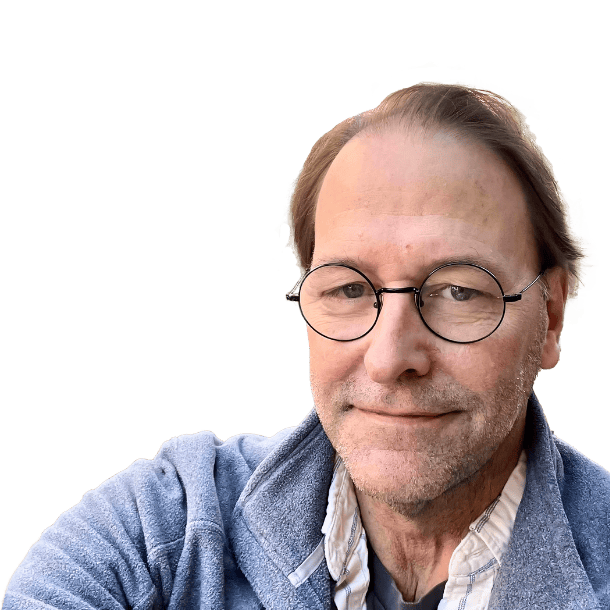View the archive of my two-hour class and discover the Five Things I’ve Learned about writing and living well – while writing about food, cooking, and life in a kitchen.
Hi I’m Michael Ruhlman I’ve written nine non-fiction books, half of them food related, two works of fiction, nine cookbooks, and I’ve collaborated with chefs on 13 other books, both cookbooks and memoir—more than 30 books in all. So I write about a lot of things in many different genres. But what really swept me into becoming a full-time writer was writing about food and and cooking and chefs.
I want to briefly describe my personal path here because it’s important to the structure of how I want to share what I’ve learned. I never set out to be a food writer; I wanted to be a real writer, a capital W writer. I wanted to be Fitzgerald and Hemingway. After writing two novels that failed to sell, but determined to be a writer of books, I happened on a non-fiction subject I knew was of interest to growing numbers: chefs and the work of cooking. I talked my way in the Culinary Institute of America to write a book, from a student’s vantage, of what this school said you needed to know to be a chef.
When I’d finished The Making of a Chef, I couldn’t sell another book proposal. I was almost broke and I thought, “I’ll get a job as cook.” I went out to a barbecue joint in the middle of Ohio, owned by a woman, Susie Heller, who was well connected in the chef world. She could help me find the best chef to work for in Cleveland. I’d keep learning about a fascinating world, but critically I’d start getting a paycheck.
Instead, Susie looked at some of my literary work and catalogue copy of the chef book and said: “I’m working with Thomas Keller on his cookbook and we’re looking for a writer.” Among cooks, I knew, Keller was the most exciting, mysterious, brilliant chef in the country at his famed French Laundry restaurant.
Long story short: a broke, unknown writer, walks into a BBQ joint in rural Ohio and walks out with a plane ticket to the most exciting restaurant in the country, maybe the world, to write this chef’s cookbook.
This was clearly divine intervention: God was saying to me, “I know you want to be a novelist, Michael, but you’re good at this.”
When that cookbook was done, I had something few journalists had: a culinary education of the basics, and an in-depth understanding of what those basics could become in the hands of an extraordinary chef.
But what I ultimately learned is that life in a kitchen is a metaphor for how to live well, or live badly, about efficiency of movement, ultimately about awareness, awareness of those around you of the world around you, and how food becomes an objective correlative—and we’ll cover this term in class—for the must fundamental aspects of our humanity, love and grief, loss and triumph, and the power of individual will.
A lot of people come to me and say, “I want to become a food writer.” My response is always, “Become a writer first, then turn your attention to food.”
So the first thing I’ve learned from writing about food is how to become a writer first. In this class, I will give you the tools you need to learn the rest in whatever subject or genre you’re most comfortable in. Without them I do not think I’d have succeeded as a writer.
The class will explore how to integrate writing into your daily life.
Many today start writing about food personally, through their own publications, blogs or newsletters, and I’ll focus on best practices for this work.
We’ll also talk about practical issues and advice facing the aspiring food writer and how to get better at it on your own.
Most importantly, I want explore the ways food is a powerful device in story telling itself. Food is an exceptional pathway to getting at the fundamental facets of our lives and deepening their mystery.
The great food writer MFK Fisher said, “It seems to me that our three basic needs, for food and security and love, are so mixed and mingled and entwined that we cannot straightly think of one without the others. So it happens that when I write of hunger, I am really writing about love and the hunger for it, and warmth and the love of it and the hunger for it… and then the warmth and richness and fine reality of hunger satisfied… and it is all one.”
Please join me for a class on what we learn about writing when we write about food, and how to integrate these lessons into your writing life.
– Michael Ruhlman

